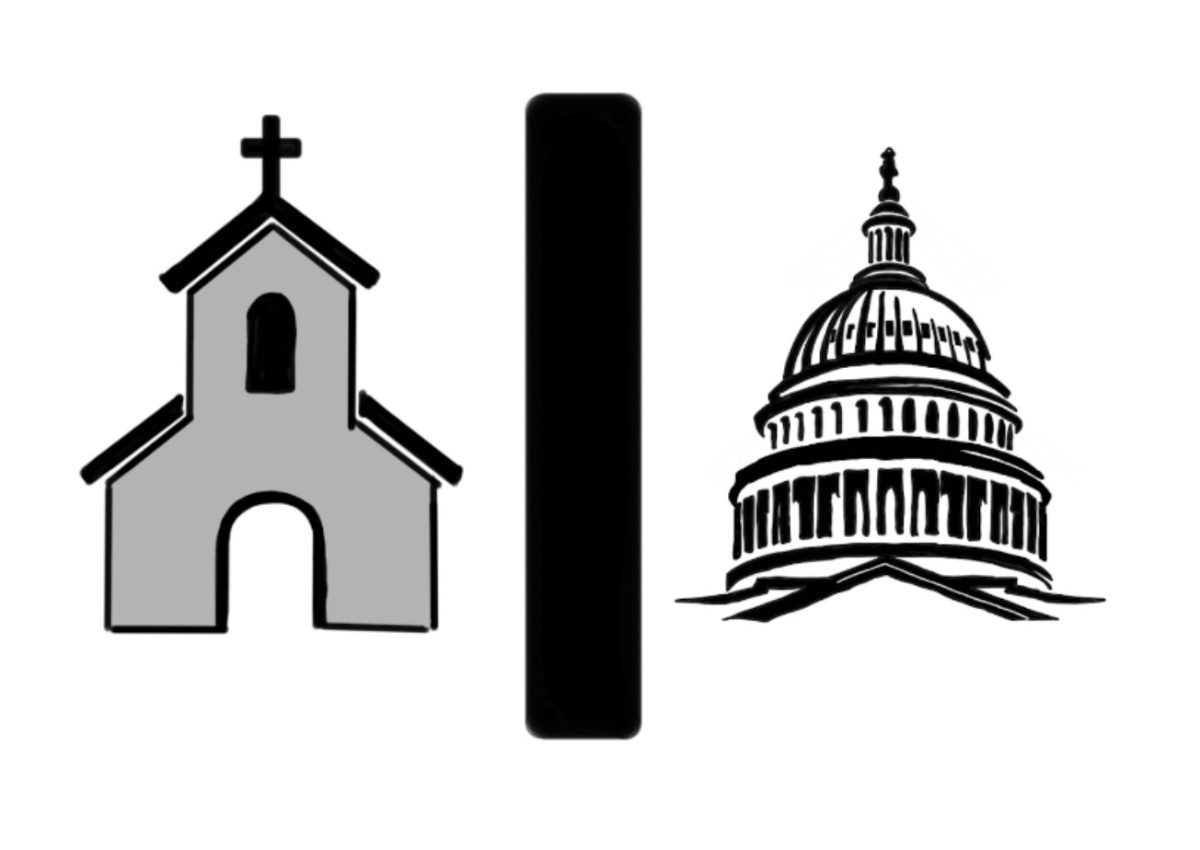The United States recently elevated Mike Johnson to Speaker of the House. Previously a generic and obscure Louisiana representative, Johnson’s newfound power gives him a powerful voice even though he has appalling things to say.
I started watching the news out of curiosity, this desire to be part of the big wide world, to be independent and to be an adult. As I entered high school, I started paying attention to politics out of fear, because I realized that the world wasn’t so wide and the old white men raising their fists in the name of freedom could hurt me.
The partisan polarization between America’s largest political parties (Republican and Democrat) has continued to feed societal reclusion, something that divides people from diverse opinions and limits one’s ability to view another person as more than their beliefs.
So what is going on in the current political climate? On Oct. 3, Republican congressman Matt Gaetz from Florida led the motion to oust former Speaker of the House Kevin McCarthy. Every Democrat and hard-right Republican backed Gaetz in a 216-210 vote against McCarthy.
Out-of-control spending and an inability to agree on the nation’s budget was listed as a major reason for McCarthy’s removal. The threat of a government shutdown would have seen repercussions such as lack of pay for federal employees, military impacts and public/environmental health dangers.
But is McCarthy’s replacement any better? Louisiana congressman, Republican Mike Johnson, was elected speaker on Oct. 25. The Speaker of the House not only acts as the leader for the House of Representatives but is second in line for the presidency.
Speaker Johnson is not better; in fact, I would argue he is substantially worse. In fact, a report published on Nov. 10 by The Rolling Stone confirmed the presence of a Christian Nationalist flag outside his office, which opens the discussion to Johnson’s religious beliefs, and how they contradict the constitution.
The flag (right) originally appeared during the Revolutionary War and was recently seen flown by Trump supporters at the Jan. 6 United States Capital attack.
Tori Otten, an associate writer for The New Republic, explained the warped symbol of freedom the flag has taken on. She expressed how a sect of Christianity, the New Apostolic Reformation or NAR, has embraced the flag, turning it into a symbol that represents NAR’s belief system, a major part of which is that it is God’s will for Christians to take control of all aspects of U.S. society. This includes education, arts, entertainment, media and businesses, thereby creating a religious nation.
To see this symbol hung so high in office is a clear opposition to the Founding Fathers’ concerns for the separation of church and state and creates a scary perception of America’s political trend. The First Amendment’s Establishment Clause clearly prohibits the government from establishing a national religion, but this is exactly what Speaker Johnson wants to do.
Nikki McCann Ramirez touched on exactly this in an article for The Rolling Stone, discussing Johnson’s advocacy for the return of prayer in public schools and ridiculous views on mass shootings. “The man who is now second in line for the presidency has blamed mass shootings on both teaching evolution and abortion,” wrote Ramirez.
Bradley Onishi and Matthew D. Taylor discussed Speaker Johnson’s extremism in a Nov. 10 article from The Rolling Stone. They discussed how Johnson slots firmly within the hardline evangelical wing of the Republican coalition, that he holds strict positions on abortion, thinks homosexuality is a lifestyle choice that should not be recognized under legal protections, defends young Earth creationism (believes the Earth and all its life were created at once 10,000-6,000 years ago based on his interpretation of Biblical genealogy), and blames school shootings on the sexual revolution of the 1960s. He also directly questioned the framework of the separation of church and state.
The separation of church and state protects your right to believe as you choose, but the hard-right republicans screaming for “freedom” don’t believe this worthy of their cause.
We’ve already seen examples of legislation that is primarily based on religious ideology. Such legislation has stripped away women’s bodily autonomy and opened the door to the total disappearance of LGBTQ people’s few protections.
In an anonymous Summit student survey, only 1 out of 26 respondents said that religion should have some impact in legislation.
“Religious views should not impact legislation because laws apply to all citizens, and it wouldn’t make sense for these laws to be influenced by a belief system held only by a percentage of the population,” wrote an anonymous Summit sophomore on the survey.
In fact, a recent report from the Public Religion Research Institute (PRRI) demonstrated the declining prominence of religion in American lives. The report provided data that demonstrated the decline in Americans who think religion is important. The data said that 29% say religion is not important to them, and only 16% said that religion was the most important thing in their life. The remaining 55% fell somewhere in between.
A 2021 report from the Pew Research Center stated that about three in ten U.S. adults describe themselves as religiously unaffiliated, and a separate Pew survey found that Gen Z is the nation’s least religious generation. This sends several messages to politicians, messages that are being ignored. Especially by Republicans.
But Speaker Johnson thinks flying “an appeal to heaven flag” outside his office, an office that carries major importance, is what the country needs.
There are many examples of the eroding wall between church and state, but one that stands out is the 2021-2022 case of Carson v. Makin. This case reached the Supreme Court from Maine after a family took issue with the state’s refusal to use the tuition assistance program–for parents who don’t live close enough to a public school to send their children there–to pay for tuition at a religious school. For the first time, the Supreme Court held that a state must fund religious activity as part of an educational aid program, setting a precedent for similar judgments going forward.
Allowing public funds to support a religious education has further blurred the lines between the separation of church and state.
In a survey for the ACLU Program on Freedom of Religion and Belief, Heather L. Weaver and Daniel Mach wrote that “Many people of faith, including Christians and adherents of minority faiths, strongly support the separation of church and state as a core component of religious liberty.”
I now pay attention to our world with the intent to help improve it. I may not be able to pick a new Speaker of the House, but I can send him a fiery email. There may never be a way for me to snap my fingers and stop the growing animosity dividing our country, but I can have a polite conversation with someone and try to build a bridge.
You, a Summit student, will claim a power on your eighteenth birthday, the power to make your voice heard and to stop the growing distance between politicians and citizens’ beliefs. Today’s youth carry with them a responsibility to be informed and to use their knowledge to elect candidates that uphold the principles of democracy, including the religious freedom and separation of church and state that the Constitution granted.
Don’t give up hope.
































